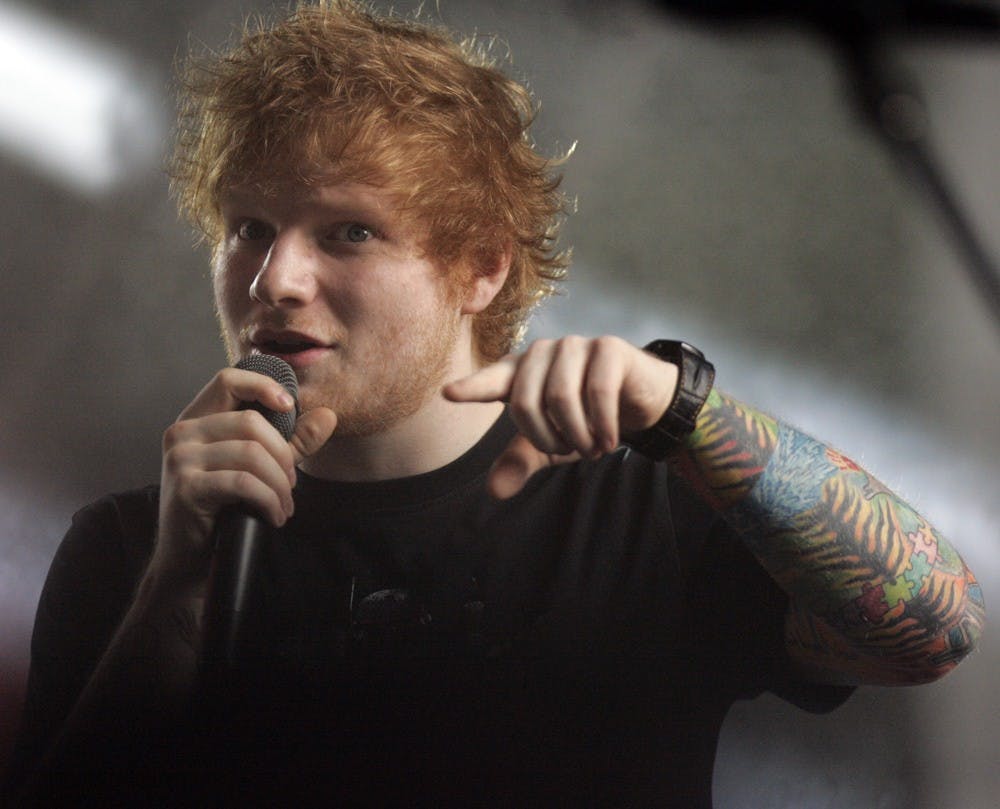“Don’t fuck with my love” wasn’t sung by Sheerios, but spewed by Thronies after GoT’s highly anticipated return on July 16th. Though reactions to Ed Sheeran’s infamous cameo were either hilarious, witty, or (excessively) aggressive, most of them are rooted in the same simple fact: the singer’s appearance on the show was a terrible idea.
Celebrity—i.e. non-actor—cameos are far from being new in the film and TV industry. Through all ten seasons of Friends, dozens of superstars ranging from Chris Isaak to Richard Branson have starred as guests. A sans–make–up Michael Jackson portrayed an alien in Men in Black 2. David Bowie was basically an accredited actor: throughout his career, he had more than twenty appearances on the silver screen. In fact, it’s safe to say that almost everybody who’s somebody has made at least an appearance either in a movie or in a TV show.
The reasons behind a celebrity cameo vary. Sometimes producers choose to call on guest–stars in an attempt to attract a more diverse audience. Other times, celebs are invited as a means to acknowledge their artistic contribution. The sheer frequency of these appearances implies that most of them will basically go unnoticed. However, there are some that attract a lot of praise, such as Britney Spears’ 2008 comeback on How I Met Your Mother—and then, of course, there are disasters like that of Ed Sheeran’s.
But what makes a cameo good or bad? Realistically, the on–screen time of non–actors is minimal, and to say that their roles are generally insignificant would be an understatement. When cameos become a publicity stunt, it’s not even worth assessing their artistic value. So why are GoT fans fuming?
The show’s setting is a fictional realm. Historically, the time period it depicts was inspired by the Middle Ages. Much like Lord of the Rings or Star Wars, GoT absorbs its fans into an imaginary universe: when you watch Arya Stark riding her horse in the woods, you can almost feel the smell of the cold, damp ground. You’re there, with her, but then an all–too–familiar voice bursts your bubble: uh–oh, the same guy that sings “Shape of You” on the radio 24/7 (when is it going to end?) has somehow infiltrated Westeros.
The problem with Ed Sheeran’s cameo isn’t the fact that he’s, well, Ed Sheeran. It could’ve been any other popular singer and Thronies would probably still be angry. It could’ve even been himself, still, if he had just shut up. But his voice is disruptive, prompting all of us that we’re only watching a show. And being reminded that what you regard as your own world—albeit for one hour a week—isn’t in fact real is a big no–no for a show with a fanbase as huge as GoT’s.
Aren’t all movies and TV series supposed to pull you into their fiction, though? Why don’t other celebrities get as much criticism? After all, Christopher Nolan gave former 1D frontman Harry Styles a full–fledged part in his critically–acclaimed wartime epic Dunkirk. The young actor’s performance largely went unobserved or gained favorable reviews, and no critic or Nolan aficionado complained about the casting choice. But Styles didn’t start nervously humming “Sign of the Times” while running away from the German troops. Instead, he embraced his character in its entirety—as a viewer, you still feel like you’re in 1940, swimming in bloody waters alongside the terrified Brits.
Crossovers between fact and fiction rarely work. It’s one thing having Mike Tyson demanding his tiger back in The Hangover, and it would’ve been a completely different thing watching Cara Delevingne give the Mariinsky Theatre audience an impromptu fashion show as a young socialite in Joe Wright’s 2012 Anna Karenina. For advice on how to successfully incorporate celebrities into a fantastic kingdom, HBO could look back to its previous tactics: members of Coldplay and Of Monsters and Men have appeared on the show in the past, and their cameos were nowhere near as disputed as Sheeran’s.
So, in an age in which everyone knows what celebrities look and sound like, it’s crucial for show–makers to ensure that their presence doesn’t interfere with the viewers’ experience—unless they’re actively seeking massive backlash, or the impulsive deletion of yet another popular Twitter account.







